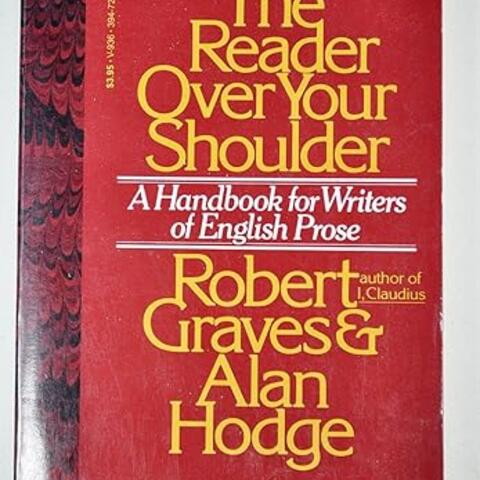Using Writing to Squash Your Inner Critic: Three Strategies
Notes from a Writer's Desk

Have you ever sat down to write up a grant proposal, a conference abstract, or the next section of your dissertation and found yourself paralyzed by the blank page? This paralysis, known variously as blank page syndrome or writer’s block, can stem from many causes, but a common one is the intrusion of your inner critic. The inner critic is the negative voice in your head that will tell you that your ideas or skills aren’t good enough to get that grant, present at that conference, or complete that dissertation. The inner critic is great at self-fulfilling prophecies as its goal is to persuade you that the attempt isn’t worth beginning in the first place. Why write the proposal if you’re not going to get it? Imposter syndrome is a particular flavor of inner critic that suggests that, not only will you not get the grant, but if you write the proposal you might be exposed as, well, an imposter. All of this negative self-talk works to keep you from putting words on the page, which ultimately also prevents you from testing those ideas and seeing their value.
While imposter syndrome and an active inner critic can make it difficult to start writing, writing itself can help you to work through those negative thoughts. Below are three strategies that can help you not only to start writing when you feel that fear of the blank page setting in, but also to reorient your thinking so that your inner critic is not quite so loud.
Phone a Friend
I’ve never liked the phrase “fake it till you make it.” When you’re already feeling like a fake, being told to “fake it” can just feed into that mindset. However, it can be helpful to engage in a little make-believe. Rather than focusing on what is scary about the task at hand, imagine you are telling a friend about your idea. Maybe you actually call your friend and explain the idea out loud, but you can also record a voice note as if you were talking to a friend or write them an email. This activity can help you to focus on explaining your ideas, rather than worrying about their quality or future reception.
Use a Formula
The inner critic is strongest when all your ideas are in your head. Getting words onto the page can help to remind you of all the knowledge and preparation you already have. One way to do this is to use a formula. When actually writing your abstract, outline, or introduction feels overwhelming, try asking yourself some basic questions instead and jot down your answers. What is your topic? Your methodology? Your argument or hypothesis? What is your relationship to the literature on your topic? Answering these questions can remind you of everything you already know and can often result in an outline of your writing so that you can just continue filling in the gaps.
Free-write
In contrast to the formula method, free-writing is the practice of writing anything at all on a given topic. However, like all three strategies presented here, free-writing still has the goal of giving you material to work with so your ideas are on the page and not just in your head. Free-writing can be helpful if answering specific questions feels too overwhelming. Instead, you can set a timer and write out everything you have ever thought about your topic until the timer goes off. You may even find that you want to keep writing after the timer beeps! The free-write is meant to be a document just for you—like a map of your brain—so things like grammar, style, structure, and transitions don’t matter. This attitude can help to remove the pressure associated with how you think the finished product should look or who you imagine might read it.
None of these ideas will get rid of your inner critic, but they will help you to move past it. Used consistently, strategies like these can build your confidence in your ability to move from an early idea to a finished product as you see that process unfold again and again.
Ready to book an appointment with FWC staff? Access the FWC intake form.
Get the Latest Updates
Join Our Newsletter
Subscribe to Colloquy Podcast
Simplecast




